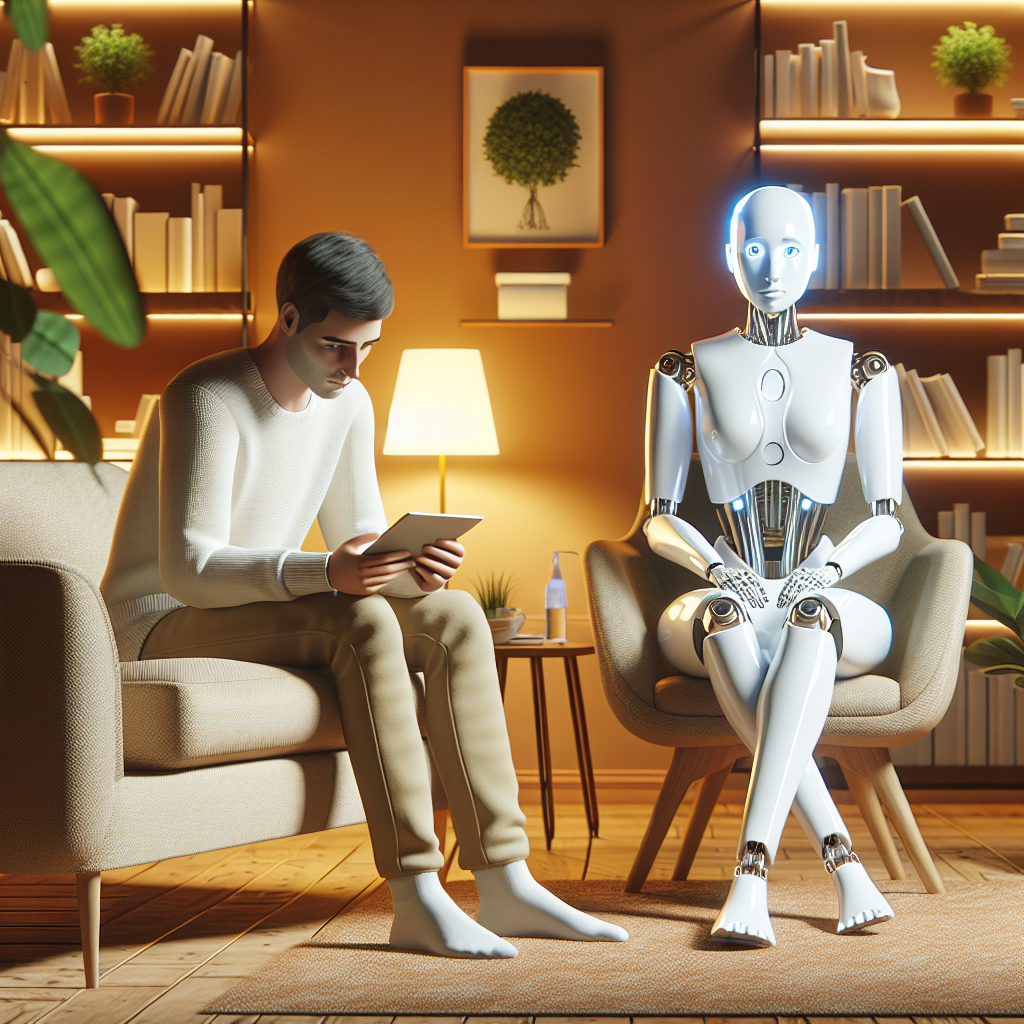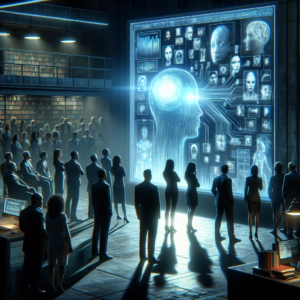My Therapist is a Bot: The Rise of AI in Mental Health Treatment
In recent years, the landscape of mental health treatment has undergone a significant transformation, driven largely by technological advancements. As traditional therapy practices continue to evolve, many individuals are turning to artificial intelligence (AI) to guide them on their mental health journeys. The phrase “my therapist is a bot” is becoming more common, reflecting a growing acceptance and reliance on digital tools for emotional support and mental well-being.
Understanding AI in Mental Health
Artificial intelligence refers to computer systems that are designed to simulate human intelligence. In the context of mental health, AI applications can include chatbots that provide therapeutic conversations, algorithms that analyze mood patterns, and virtual reality programs that offer exposure therapy. These technologies are not meant to replace human therapists but rather to complement existing mental health services and provide support to those who may otherwise not seek help.
One of the most significant advantages of AI in mental health treatment is accessibility. Many people struggle with the stigma surrounding mental health issues, which can deter them from seeking traditional therapy. AI-driven solutions offer a level of anonymity and comfort that may encourage more individuals to seek help. Additionally, these tools are often available 24/7, allowing users to access support at their convenience.
Benefits of AI-Driven Mental Health Tools
As we delve deeper into the rise of AI in mental health, it is essential to recognize the numerous benefits these technologies provide.
1. Increased Accessibility
AI mental health tools can reach people in remote areas where professional help may be scarce. This democratization of mental health services is crucial, especially in a world where mental health issues are on the rise. Users can engage with chatbots and other AI applications from the comfort of their homes, making it easier for them to access support and guidance.
2. Cost-Effectiveness
Traditional therapy can be expensive and often requires a financial investment that not everyone can afford. AI-driven platforms usually have lower costs, making mental health care more attainable for a broader audience. This affordability can open doors for individuals who previously felt that therapy was out of their reach.
3. Immediate Support
AI tools can provide immediate assistance for users in distress. When someone is experiencing a crisis, they may not have the luxury of waiting for the next available therapy appointment. AI applications can offer instant support, guiding users through coping strategies and helping them manage their emotions in real time.
The Challenges Ahead
Despite the numerous benefits of AI in mental health treatment, several challenges need to be addressed.
1. Limited Human Connection
While AI can provide valuable support, it lacks the emotional intelligence and empathy that human therapists offer. For many individuals, the therapeutic relationship is a central component of the healing process, and an AI cannot fully replicate that experience. Building trust and rapport with a bot may feel impersonal, limiting the effectiveness of the treatment.
2. Data Security and Privacy Concerns
AI systems rely on sensitive personal data to provide tailored support. This raises significant concerns about data security and privacy. Users must trust that their information will be handled responsibly and not exploited. As regulations and ethical standards evolve, it will be crucial for developers to prioritize user privacy and data protection.
3. Quality of Care
As the number of AI mental health applications increases, so does the variance in quality. Not all programs are created equal, and some may offer subpar guidance or inaccurate responses. Users must be cautious and discerning when choosing an AI tool, ensuring it is reputable and based on sound psychological principles.
The Future of AI in Mental Health Treatment
As technology continues to develop, the integration of AI in mental health treatment is likely to expand. Future advancements may include more sophisticated algorithms capable of recognizing subtle emotional cues or context, providing even more personalized support. Furthermore, as society becomes more accepting of mental health discussions, the stigma surrounding therapy—whether traditional or AI-driven—may continue to diminish.
Innovative companies are already working on hybrid models, combining AI initiatives with human intervention. For example, individuals might initially interact with a chatbot for immediate assistance before being referred to a human therapist for more in-depth treatment. This combination could provide a comprehensive approach to mental health care, ensuring that users receive the support they need.
Real-World Examples of AI in Mental Health
Several notable examples highlight the successful integration of AI in mental health treatment.
Woebot is a popular chatbot designed to provide cognitive-behavioral therapy (CBT) techniques. Users engage with Woebot through a conversational interface, which helps them identify and manage their thoughts and emotions. The tool offers a non-judgmental space where individuals can express their feelings and receive immediate feedback.
Wysa is another AI-driven mental health app that uses evidence-based therapeutic techniques to support users. Wysa combines chatbot interactions with guided exercises and self-help tools to empower individuals in managing their mental health.
A different approach is taken by Ginger, which offers a blend of AI and human coaching. Users can access immediate support from a virtual coach while also having the option to connect with licensed therapists for more complex issues. This hybrid model exemplifies how AI can coexist with traditional mental health practices.
Conclusion
The rise of AI in mental health treatment marks a significant shift in how we approach emotional well-being. While there are undeniable benefits to using AI-driven tools, it is essential to acknowledge the limitations and challenges they present. As technology continues to evolve, the goal should be to enhance, not replace, human connection in mental health care.
In a world where mental health issues are increasingly prevalent, embracing innovative solutions while maintaining the core values of empathy and understanding is crucial. By doing so, we can create a more inclusive and accessible mental health care system that supports individuals on their journeys toward healing and self-discovery. Ultimately, whether seeking help from a bot or a human therapist, the important thing is that support is available when it’s needed most.



